When I first heard the term “time blindness” I remember feeling like a light bulb had been switched on. I met my husband the first week of college at a debate club meeting. As we got to know each other, I remember being puzzled by how often he was turning assignments in at the last minute.
This post contains affiliate links. As an Amazon Associate I earn from qualifying purchases made from the links on this site, at no extra cost to you. Thanks for supporting our family business!

Table of Contents
Brian was clearly brilliant; he had great ideas, and often went above and beyond professors’ expectations for an assignment.
@dinkumtribe Can a child with ADHD be good at school? #adhdfamilies #adhdparenting #adhdproblems #adhdfamilylife #adhdfactoftheday #adhdemployee #adhdinfo #adhdingiftedkids #adhdstruggle #adhdinwomenandgirls #adhdinformation #adhdlearningaboutadhd #momsofadhdkids #adhdinschool #adhdincollege #adhdstudent @dinkumtribe @dinkumtribe @dinkumtribe ♬ original sound – DinkumTribe ADHD family travel
It was also typical for him to be one of the last people on campus as the term ended. He would be finishing his final paper and emptying his dorm room at the last possible moment. I finally understood this paradox when I learned about ADHD time blindness.

In our previous post, we talked about what ADHD time blindness is, and some of the ways it can show up in family life and work scenarios. In this post, we will talk about some of the best hacks we’ve found for minimizing the effects of time blindness on our family life.
1. Scale way back
This is honestly the hardest part of the process. We found that we needed to add in a huge time buffer to our daily lives and scheduling.
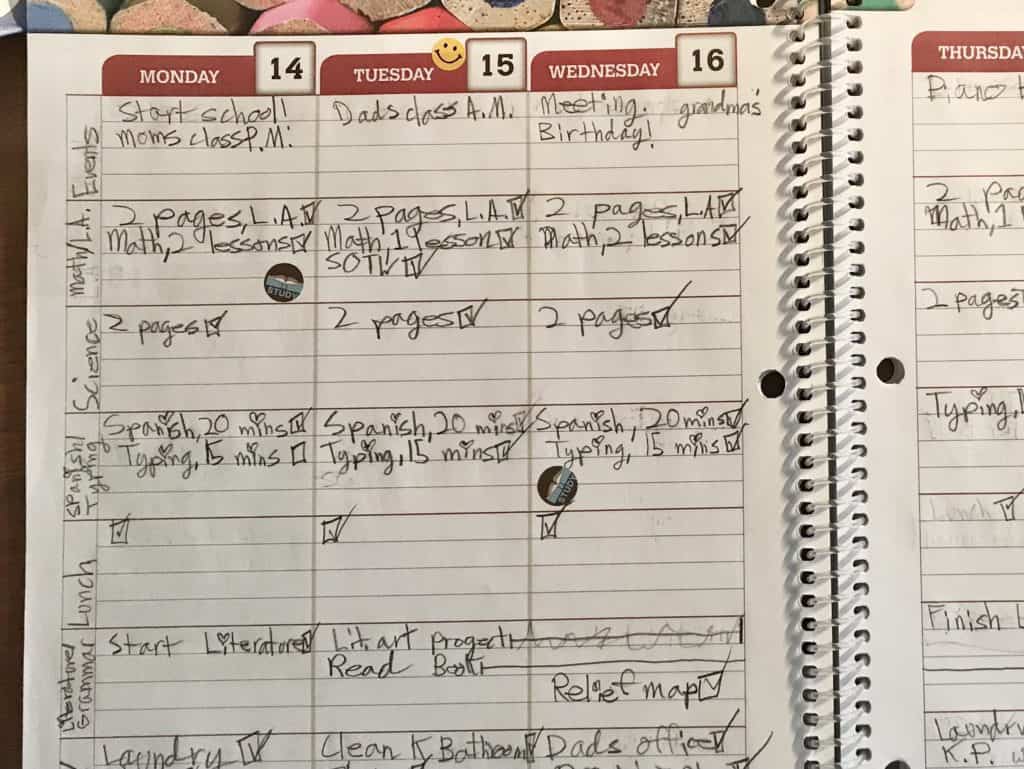
A wide margin gives us space to get stuff done and account for the unanticipated things that show up… like our son losing his shoe, or the dog throwing up right as we are leaving! Such interruptions and emergencies are a normal part of life. With ADHD in play, they show up even more frequently.
We’ve found that the easiest way to plan well is to decide how much time we think we will need, then double it. So if we think we will need one hour to get ready for church in the morning, we give ourselves two hours, minimum.
No matter how well-prepared we are the day before, something always shows up to throw off our plans in the morning! So we try not to stress, and just plan for it by adding in margin.
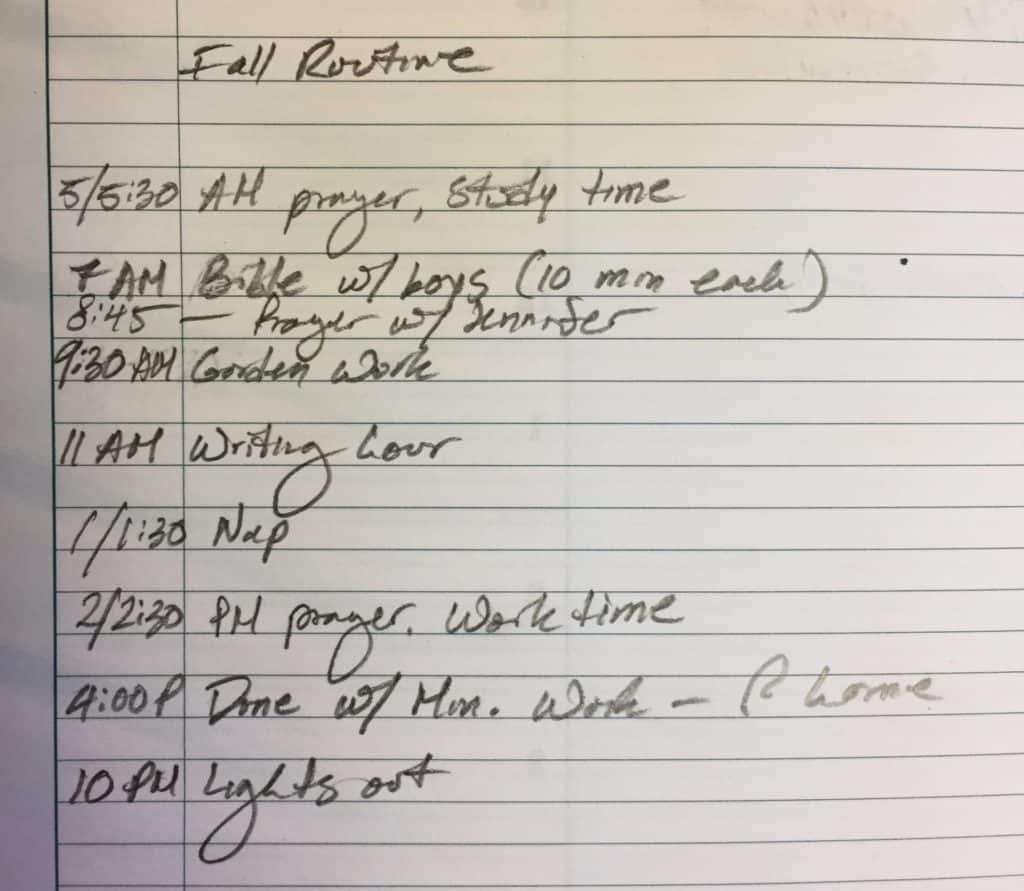
2. Set up a reasonable routine
Again, this is not an easy thing to do! Many ADHDers have amazing dreams and visionary ideas of all the things they want to do and accomplish. While that is a good thing, it makes it challenging for them to plan a realistic schedule. They see all the possibilities and struggle to eliminate any of the super important and wonderful things that they could do.
@dinkumtribe Time blindness in ADHD looks like this. #adhdfamilies #adhdparenting #adhdproblems #adhdfamilylife #adhdfactoftheday #adhdemployee #adhdinfo #adhdingiftedkids #adhdstruggle #adhdinwomenandgirls #adhdinformation #adhdlearningaboutadhd #momsofadhdkids #adhdspouse #adhdmarriage #adhdmarriageandrelationships #adhdinboys #adhdtimeblindness #adhdtimemanagement #adhdtimeparadox @DinkumTribe ADHD family travel ♬ Run Away to Mars – TALK
Many people with ADHD are out-of-the-box thinkers, and inventors, and innovators. The difficulty is that basic things like eating, sleeping, doing laundry, and paying bills don’t get taken into account in their planning.
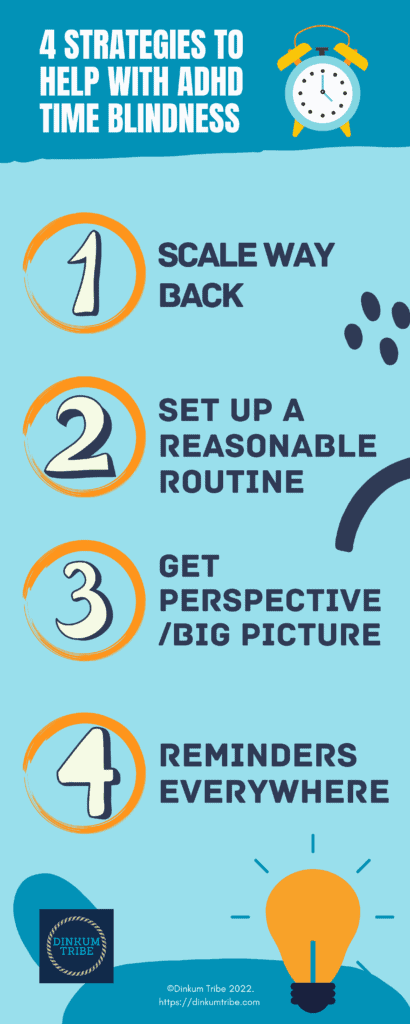
Ask a friend
This is where consulting with someone who does not have ADHD can provide realistic perspective. A friend, spouse, parent, or coach can help an ADHDer think through all the little steps that have to happen along the way. They can then accurately assess how long it will actually take to do those things.
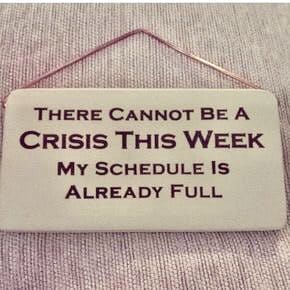
This helpful person can also remind their loved one that sleeping, eating, and paying bills are not optional activities! These uninteresting activities are what allow for the other fascinating pursuits. It’s not that the ADHD person doesn’t know this or is purposefully ignoring these tasks— they simply get hyperfocused on their goals to the exclusion of all else.
3. Get perspective
In working with my teens who have ADHD, I have found it helpful for them to write down all the things they want or need to get done in a day. Then I (Jenn) look it over and help them determine a realistic daily routine that will allow them time to accomplish what they need to do. It may need some tweaking every few weeks, or when the classes or chores change.
For my younger ones I simply design their whole routine. Note that the routine is a list of things in a specific order, not at specific times.
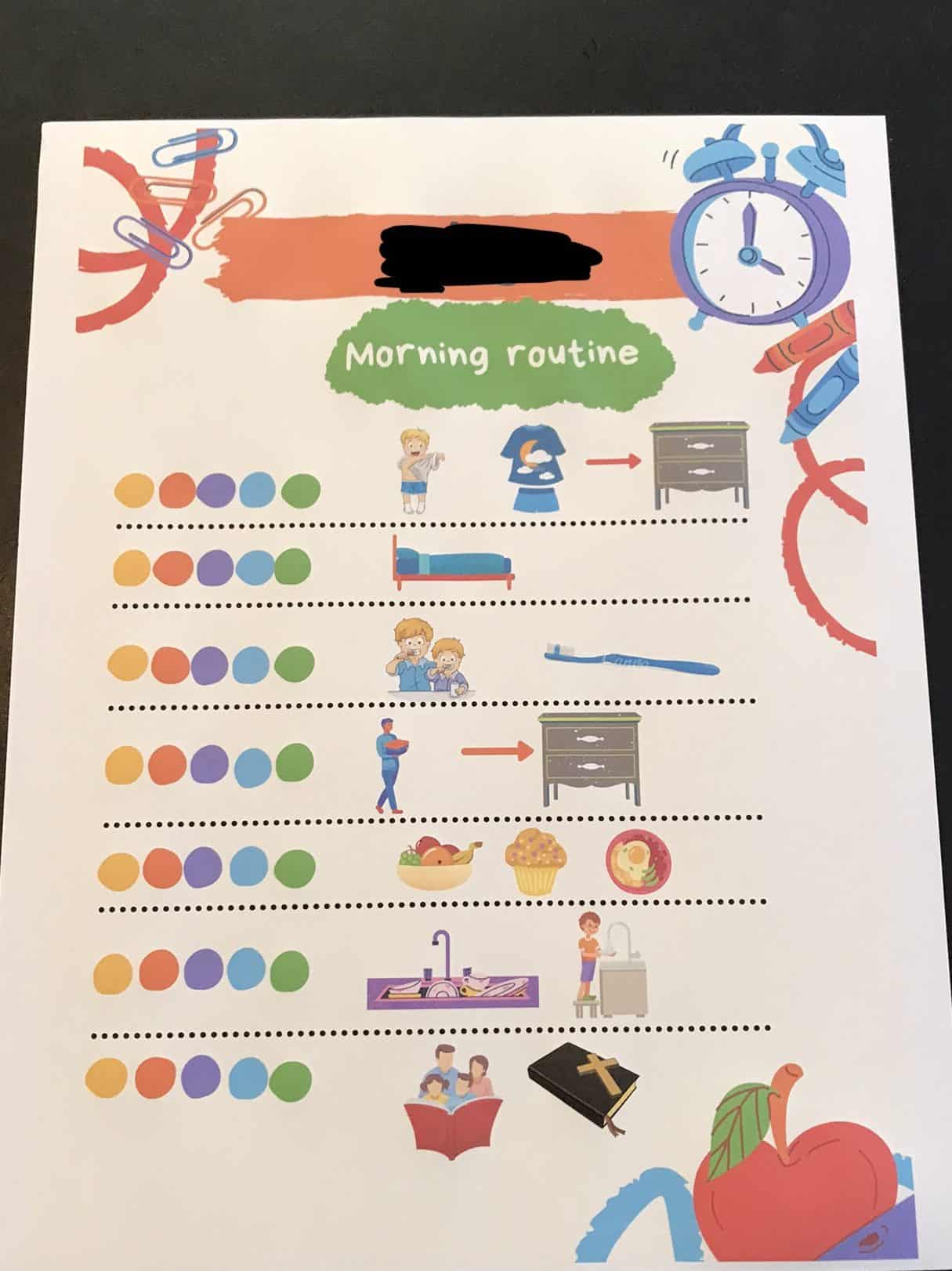
This is important because another thing that many people with ADHD struggle with is all-or-nothing thinking. In an ADHDer’s mind, a rigid schedule would mean that if they missed one appointment, the whole day is ruined!
This sounds extreme to neurotypical (non-ADHD) people, but it really contributes to the stress and mental paralysis that so often derails ADHDers (see my husband’s post). In our family, we try to avoid that kind of scenario by creating flexible routines that are not as time-dependent.
4. Remind yourself everywhere
Sticky notes, whiteboards, and digital reminders are ubiquitous in our home. The schedules and routines are printed, laminated, and posted on various rooms. This way, our ADHDers see the reminders in the places where they need the reminder.
Our chore chart is posted at key locations around the house, so that no one can say they don’t know what they need to be working on (well, not honestly anyways!).
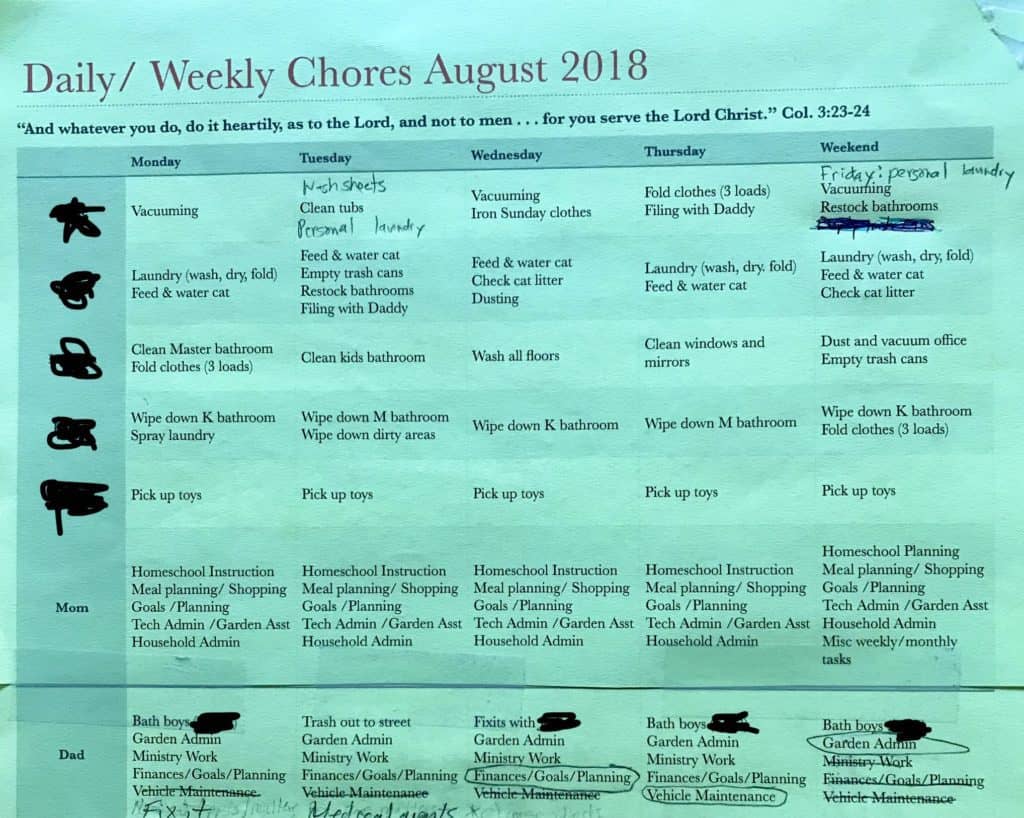
We have found this strategy helpful in handling interruptions, too. Often one of our children interrupts us and wants to have an important conversation about something immediately. That makes for a lot of disruption in a family as large as ours!
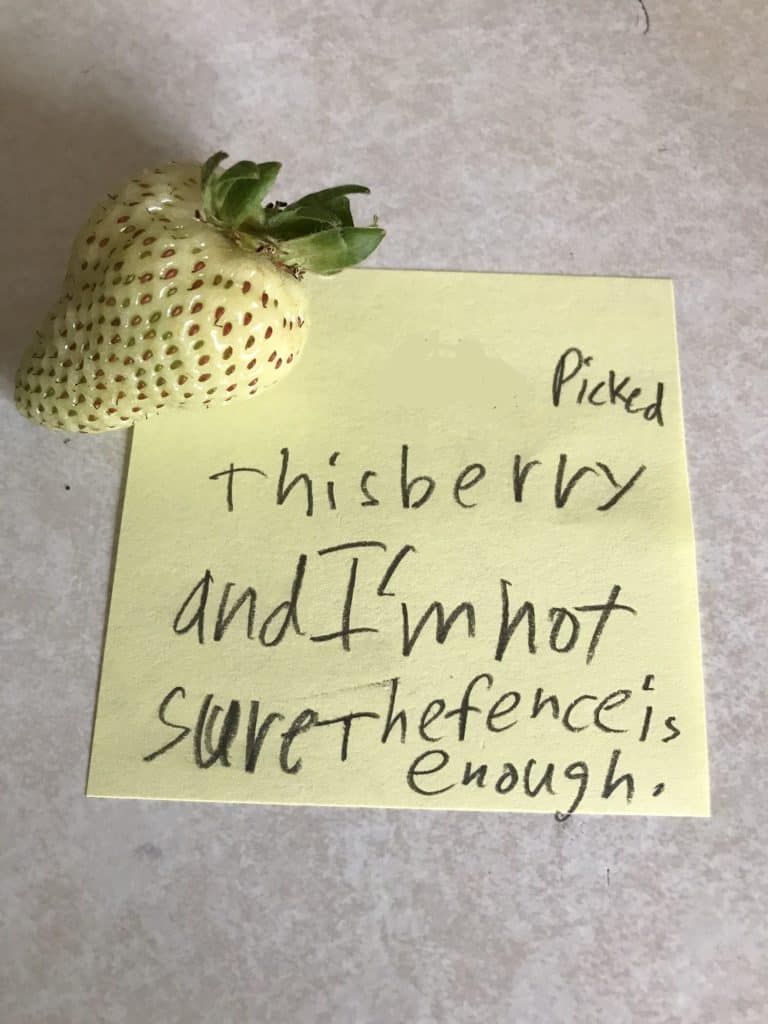
So instead when we need to have a conversation with one of our kids about something non-urgent, we ask them to write us a sticky note with the basic topic listed. That way, we can make a plan to meet and talk without interrupting the workday.
@dinkumtribe The Joon app has been a lifesaver for our kids, and a sanity-saver for Mom! #adhdfamilyissues #adhdfamilylife #adhdfamilies #adhdkidsareamazing #adhdkidsbelike #adhdsupports #adhdhomeschool #adhdchores #ouradhdjourney ♬ original sound – DinkumTribe ADHD family travel
Best practices, best products
As we have implemented these strategies, we have also had lots of opportunities to test out timers and other products designed to help with ADHD time blindness. Our next post will include reviews of some of the best timers and devices that work for our ADHD kids.
© Copyright 2022 Jennifer D. Warren. First published: November 13, 2021.
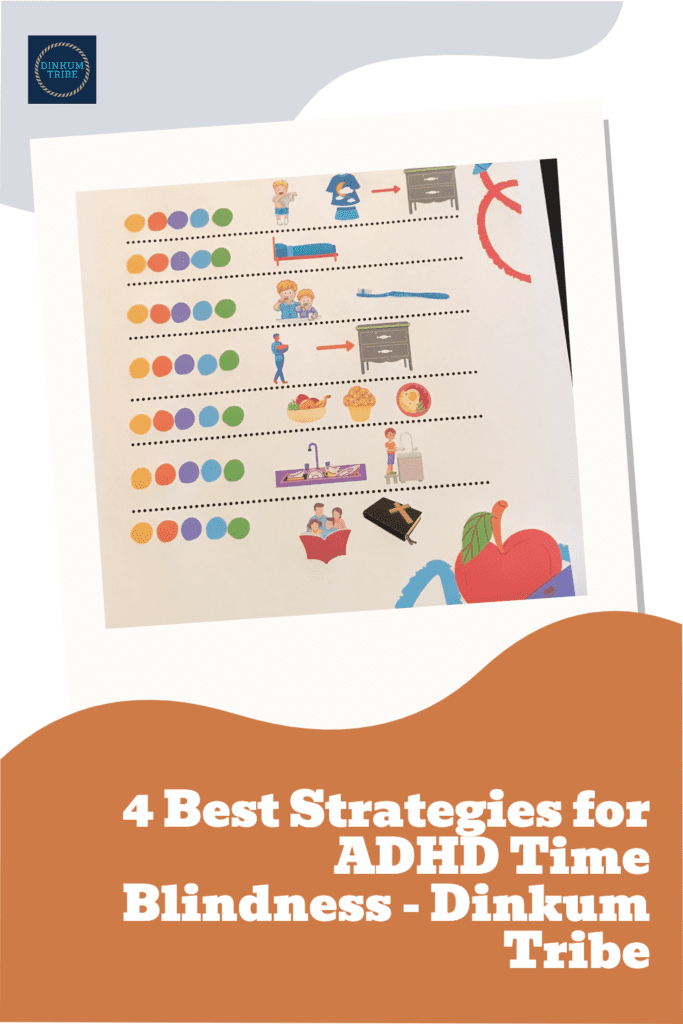
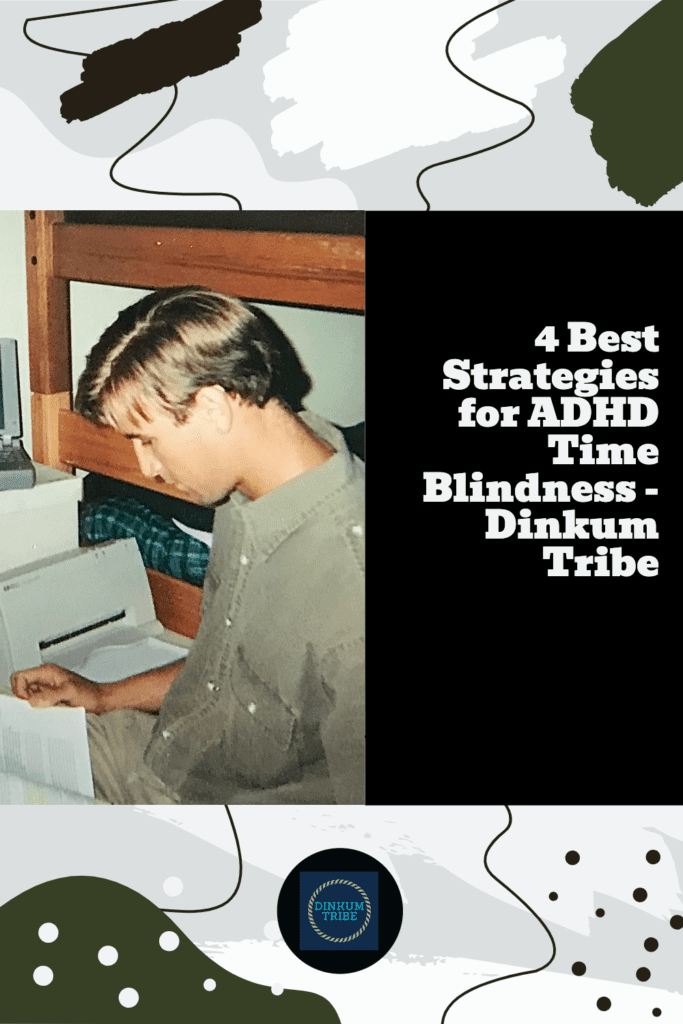
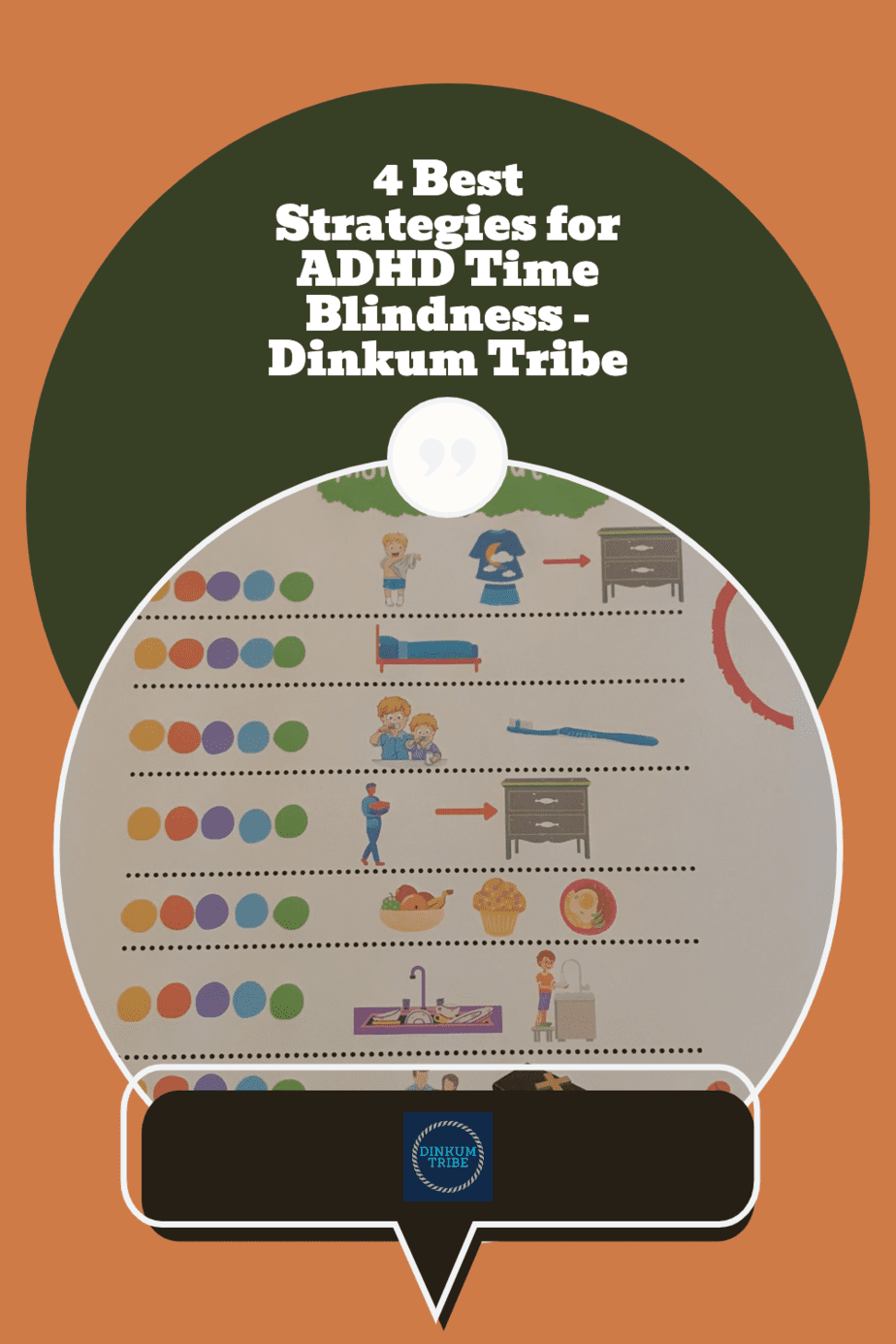


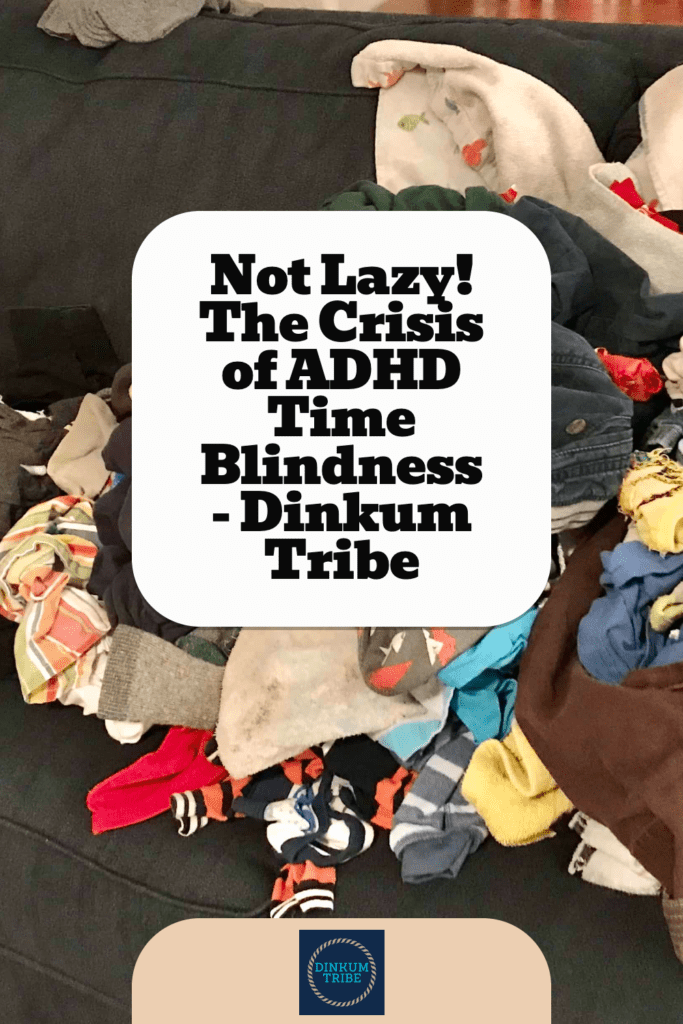
YES! #1 is what is saving our daughter this school year – her school day starts at 8:30 and it takes 15 min to drive her there, so her official departure time from home is 7:45. Which makes no sense to a non-ADHD family, BUT I will say that she has not been late to school ONCE this year, and our mornings are much less stressful – last year she was late more than not, and mornings were so much more stressed out for all of us (including her neurotypical younger sister who has to put up with the chaos her sister’s differently-wired brain can add to our lives at times.)
So nice to hear from another mom who GETS it! Working with siblings who are differently wired creates some unique challenges, as you said. I agree that life is so much less stressful when you just add in extra time.
I have never heard of time blindness before! So interesting. While none of my kiddos have ADHD, I see instances of this all the time with them. I love all of your strategies and visual guides. They would be helpful for any family. Thank you so much!
Thank you!
This is such a well-written post! I have never had to deal with time blindness but this was seriously an eye opener. It’s always good to see things from other people’s perspectives. Kind of helps you be better as well. Thank you for sharing!
Yes indeed – thanks for reading!
Wow! This was such an interesting an insightful post, thank you so much for sharing!
Thank you for stopping by – glad you found it helpful.
as an ADHD individual who specializes providing therapy to neurodivergent adults, this is spot on!
Thank you!
My husband has become the timekeeper in our home when we need to get ready as my son and I both seem to have this time blindness issue that I now have a name for – thank you. I set alarms on my phone for tasks and to get out the door as well. Since hubby took over getting our son ready for school in the morning, we actually manage to get him there on time. Great post, thanks for the info.
Thanks for stopping by! My husband also appreciates my help in getting places on time.
As an ADHD individual that specializes in providing therapy to ADHD individuals, this is spot on!
Yay! Nice to know we’re on the right track.
Never heard of time blindness! This was a super informative post and will help many out there.
I sure hope so!